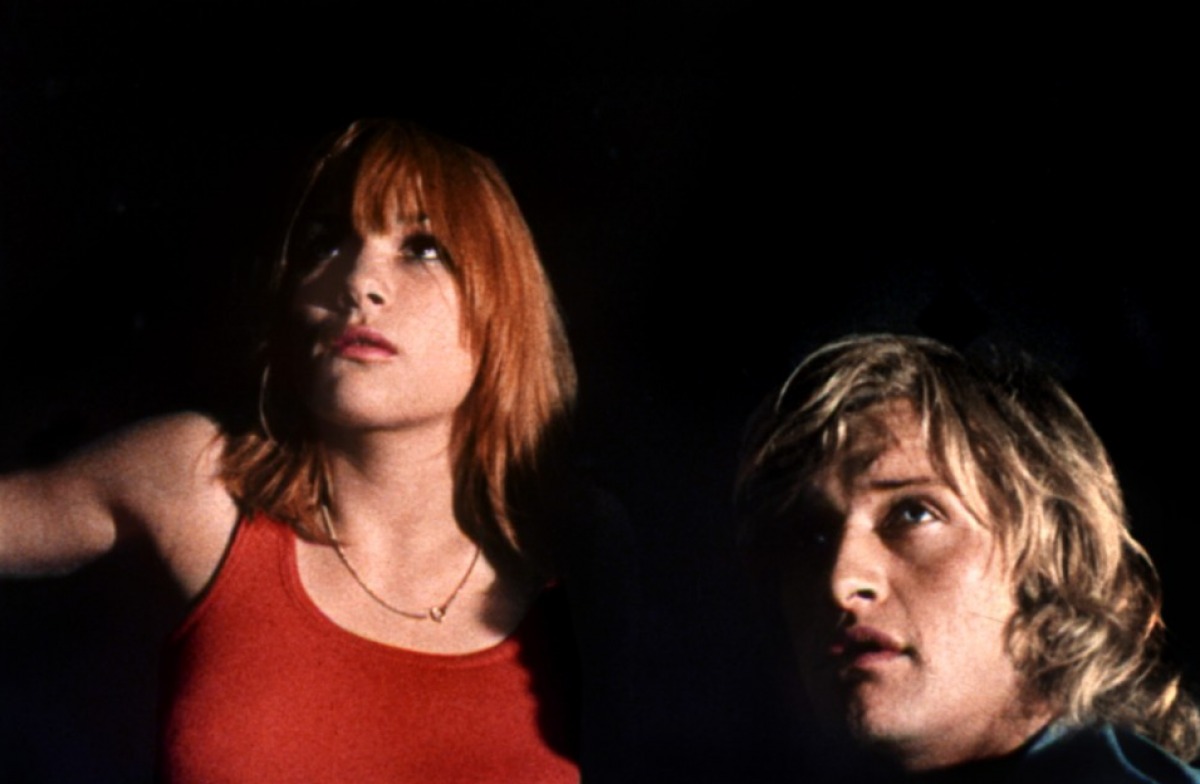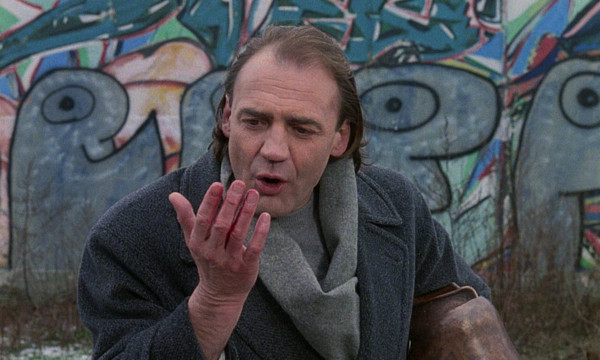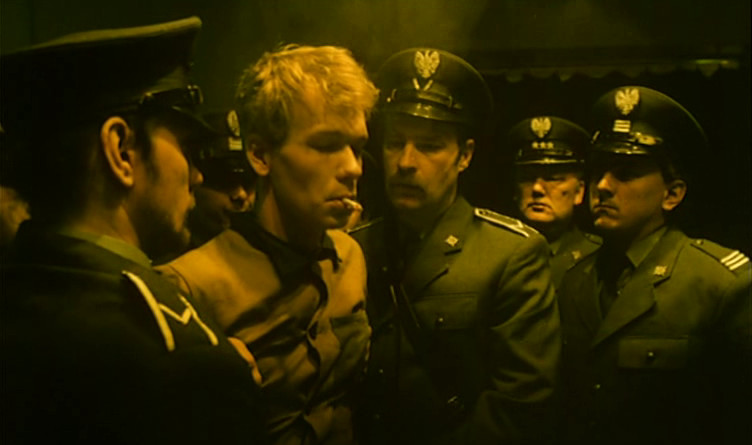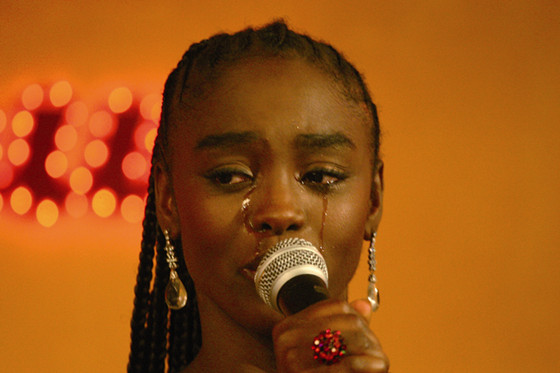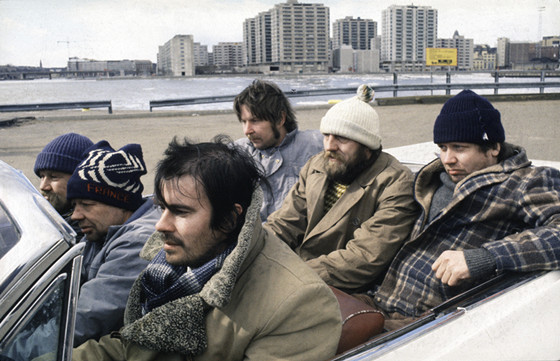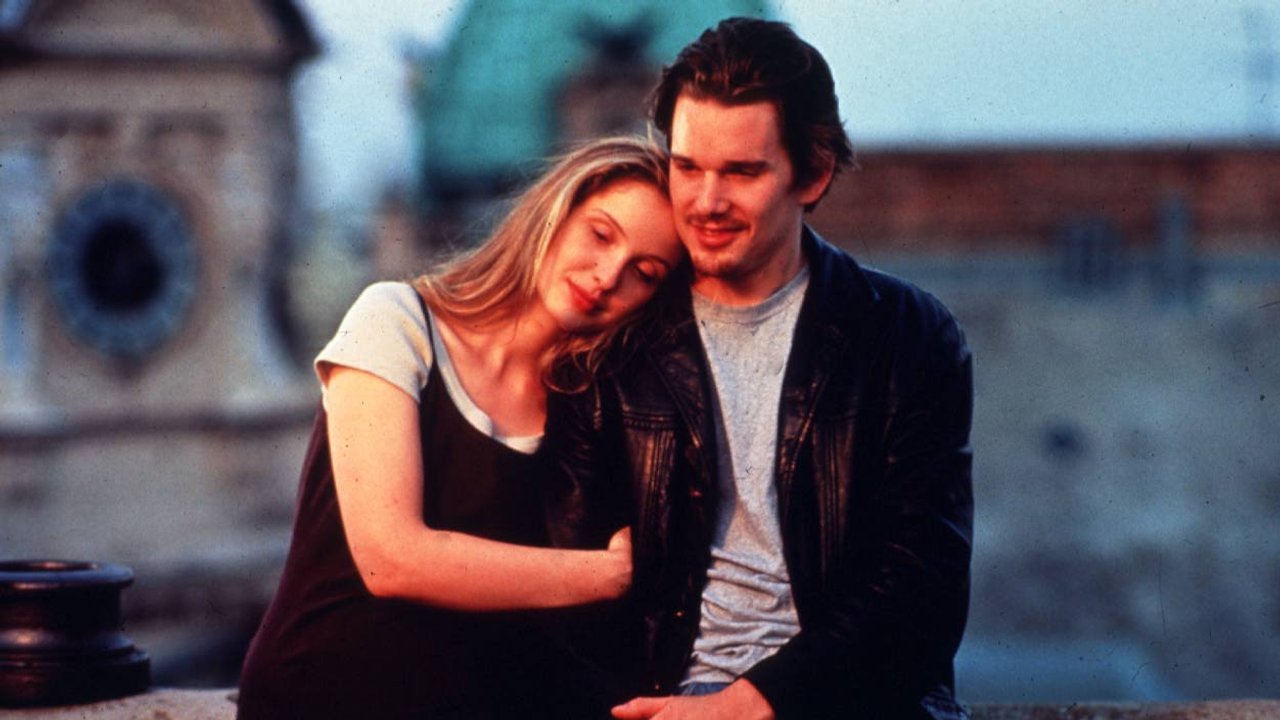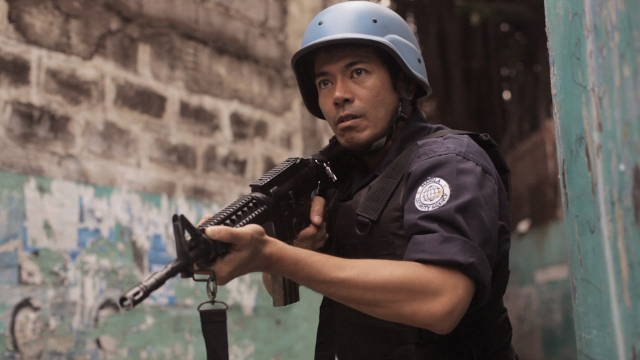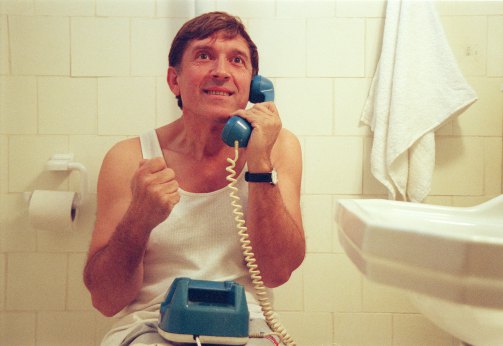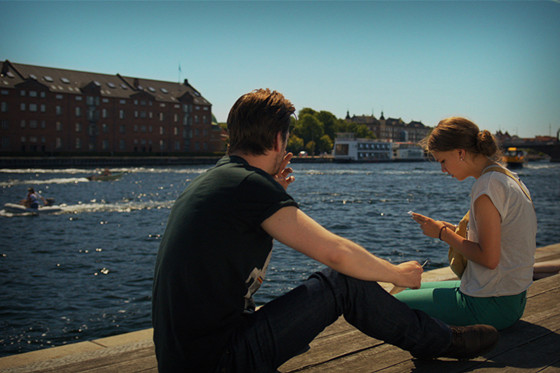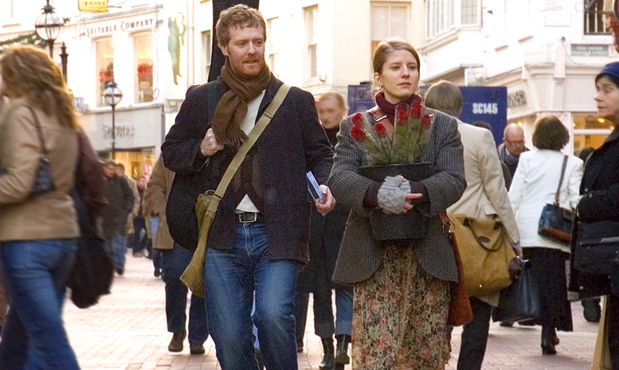21. Turks Fruit (Paul Verhoeven, 1973) – Amsterdam
Verhoeven’s breakthrough film (and his first film with Rutger Hauer) was labeled the Dutch “Love Story”. Of course, anyone who has seen the film can argue strongly against this label but there are some bare resemblances the cheesy American movie and Verhoeven’s erotic love story. The movie stars a young Rutger Hauer as gifted Dutch sculptor Eric, who has a stormy, erotic and star-crossed romance with a beautiful young girl named Olga.
The story follows the arc of their relationship and his interaction with her family. Initially, Eric is seen as a libertine who randomly picks up women, takes trophies from his sexual conquests and pasting them in a book. It is revealed that his behavior is caused by the painful memory of his break-up with Olga. This is where the flashback form of the film begins. Back in the day, Olga picked up Eric as a hitchhiker and the two hit it off immediately.
After a number of adventures, Olga suddenly starts acting strangely; she begins flirting with other men and after some arguments with Eric, he slaps her and she leaves him. Eric trashes his studio, violently crushing anything that reminded him of Olga. The two never see each other again and the flashback ends. Back in present time, we see Eric and Olga crossing paths with each other occasionally. None of them is willing to let go of the past until the terrible news of Olga’s brain tumor will once again bring them together – maybe for the last time.
It’s only fitting for a love story between an artist and a free spirit to take place in a city like Amsterdam. Amsterdam has long been the spiritual home of artists, free thinkers and libertines. The city embellishes the love between Eric and Olga and its beauty presents itself very natural. The use of hand-held cameras and natural light enabled the director and his director of photography (Jan De Bont, who would go on to be a director himself) to a produce a timeless love story in a timeless city.
22. Der Himmel Uber Berlin (Wim Wenders, 1987) – Berlin
A carefully crafted love story between an angel and a circus performer fragmented by thoughts of mortality, lust and suicide. Damiel and Cassiel are two angels whose jobs are to observe and listen to the thoughts of human beings. Their mission is to “assemble, testify and preserve” the reality of human behavior. In order to do this they roam the city of Berlin, unseen and unheard by anyone except children.
This is before the fall of the Berlin Wall so war and the separation of man are two major themes of the film. One day Damiel falls in love with Marion, a circus trapeze artist who contemplates suicide. Damiel wishes to become a mortal in order to be with the woman he loves. Also in Berlin is Peter Falk (as himself), who arrives in the city for a movie shooting.
Falk questions his abilities as an actor and seems to be worn down by his busy life and the heritage of Colombo (the TV character that made him famous). It is implied that Falk was also an angel once but has become a mortal in order to experience life. This subplot somehow finds a way to fit perfectly into the story of this truly magnificent film.
Another great character in the film is Berlin itself; somber and gritty Berlin is torn apart by war and hatred and not even the angels can do anything about it as they are here only to observe. There is a wonderful scene in the film, in which the two angels discuss the fate of Berlin, Germany and mankind in general. It almost seems like everyone in the film (angel or human) secretly wishes for Berlin to rise again and become the beautiful city that it once was.
23. A Short Film about Killing (Krzysztof Kieslowski, 1988) – Warsaw
Krzysztof Kieslowski always saw things differently, even his beloved native Warsaw. The run down post-cold war communist Warsaw provides a cold and melancholic back drop to the film “A Short Film about Killing”. Warsaw is composed of jaded landscapes of dirty sepias and dishwater greys. Despite this, Kieslowski’s love for the city is present in every frame.
The film is an expanded version of the TV Series “The Decalogue” that features ten short films on the Ten Commandments. The plot couldn’t be simpler.
A senseless, violent murder is followed by a cold, calculated, flawlessly performed execution (both killings shown in the most graphic detail imaginable), while the murderer’s idealistic young defense lawyer ends up as an unwilling accessory to the judicial murder of his client. The big question the film raises is a very bitter one: does the legal system, in the name of the people, have the right to kill with cold blood?
24. Bamako (Abderrahmane Sissako, 2006) – Bamako
An African courtroom drama is not your usual courtroom drama film. That one can be sure of. You will see no fancy lawyers of reporters flooding the stair-steps of the court house. But you will see injustice, corruption and desperate fights for the truth. The city of Bamako is the capital city of Mali. It is also the setting of a trial where two sides argue whether the World Bank and International Monetary Fund are guided by special interest of developed nations.
Another issue is whether it is corruption and the individual nations’ mismanagement that is guilty of the current financial state of many poverty-stricken African countries as well as the rest of the poor undeveloped world.
This is certainly a difficult subject to discuss but director Abderrahmane Sissako finds a way to make it appealing by placing the trial amid the daily life that is going on in the city. For the ordinary people of Bamako, a bar singer and her out of work husband, life seems to go on as usual, as the people show no concern for Africa’s desire to fight for its rights.
25. Ariel (Aki Kaurismaki, 1988) – Helsinki
This is the second film in Kaursimaki’s Proletariat Trilogy that begun with “Shadows in Paradise” and ended with “The Match Factory Girl”. The film tells the story of Taisto Kasurinen, a Finnish coal miner who must find a way to live after the mine closes and his father (also a miner) commits suicide. His only hope is to head for the big city namely Helsinki.
Unfortunately, he starts his journey with the left foot; he is mugged and loses all of his cash. He finds odd jobs but has trouble getting a regular work. The only good thing in his life is meeting Irmeli, a woman with a young son. Trouble seems to be Taisto’s middle name as he soon finds himself in jail after attacking one of the muggers who stole his money.
There, he and his cell-mate plan a breakout with the hope of starting fresh in a foreign country. This proves to be more difficult than he thought, as he can barely handle Helsinki let alone a foreign country.
26. Before Sunrise (Richard Linklater, 1995) – Vienna
American writer wannabe Jesse (Ethan Hawke) has been traveling aimlessly around Europe on his own for the past few weeks. His last stop is Vienna, from where he will catch a flight home the next morning. Parisian Celine (Julie Delpy) had been in Budapest visiting her grandmother. She is currently heading back to Paris to resume her studies at the Sorbonne. Jesse and Celine meet by chance on the same westbound train out of Budapest.
The connection they feel from their short conversation on the train is enough for Jesse to suggest at the last minute that she get off the train with him in Vienna and spend time together. So they do and they begin wandering around the city, as they do not have enough money for a hotel for the night. The deal is that if she feels uncomfortable with him as time progresses, she could ditch him at any point. Celine agrees.
As they wander from place to place in Vienna, they talk about their philosophies of life and love. They also talk about logistical issues regarding their time and the feelings they have rapidly developed for each other. Like any other pair of lovers, they wonder what the future holds for them as a couple. But, come the morning and the fairy tale must come to an end.
As the sun rises over Vienna, the two lovers make plans to see each other again. Vienna is a very beautiful city – there is no doubt about that – but Linklater, Hawke and Delpy challenge us to discover the city’s beauties at night, when everything is more mysterious and romantic.
27. Metro Manila (Sean Ellis, 2013) – Manila
“Metro Manila” is a film that tries to copy the recipe of American thrillers but ends up being a solid drama that could only take place in the overcrowded Filipino capital. Looking for a better life in Metro Manila (short for Metropolitan Manila), Oscar Ramirez and his family escape their impoverished lives as rice farmers and come to the nation’s capital to make a decent living. Upon arriving, they fall victim to the manipulative ways of city hustlers and lose all their savings.
With no money and no place to stay, the family is forced to move to the dangerous slums and Oscar’s wife takes a job as a dancer in a sleazy nightclub. Luck seems to be upon the Ramirez family when Oscar takes a job in an armored truck compay He befriends his senior officer, Ong, who takes him under his wing.
Soon, it becomes apparent that Ong has been waiting for someone like Oscar for a long time. He uses Oscar’s naivety and trust in order to be successful in a get-rich scheme that involved theft and corruption. At the end of each bitter day Oscar and his family, realize that life in the big city is a lot harder than they thought.
Every time a day ends the films pauses with a few shots of Manila. If it was a good day for the characters, the audience sees beautiful shots of a prospering city that seems to be on the right track. If it was bad day, the director shows shots of the slums with their overwhelming poverty. Perhaps the old saying is true: a big city either makes you or breaks you.
28. Filantropica (Nae Caranfil, 2002) – Bucharest
According to a recent study made among Romania’s moviegoers “Filantropica” is the best film to have come out of the country since the fall of communism. Its appeal is quite easy to explain. “Filantropica” came out in 2002 when the New Wave of Romanian Cinema was just kicking off. Despite its timing, the movie is not part of the New Wave. There are no long takes or minimal use of décor and music like your typical Romanian art-house film.
The action develops quickly and the dialog is not pretentious. It is sophisticated enough to appeal to the art-house fans and intelligible enough to appeal to the mainstream audience. In terms of filmmaking, “Filantropica” is very basic – almost classic. Oddly enough, this feature makes it different from all the other films that came out of Romania in that time period.
Using two veteran Romanian actors (Mircea Diaconu and Gheorghe Dinica) director Nae Caranfil tells a classic Romanian story from the transition period using adequate language, music and the ever fascinating streets of Bucharest. In “Filantropica”, Bucharest is the capital of both the rags and the riches and shows no mercy or compassion to either.
The film itself tells the cynic story of high-school teacher Ovidiu (Mircea Diaconu) who, like most Romanians, is struggling with poverty. One day he finds an unexpected way to earn extra money. He meets local mobster Pavel Puiut (Gheorghe Dinica), leader of the beggars of Bucharest who offers him a part in his latest project. He pairs Ovidiu with his secretary, Miruna, and sends them to high-profile restaurants where, in collusion with the waiter, they pose as a couple of poor teachers celebrating their wedding anniversary.
At the end of their dinner, they find they don’t have enough money to cover the check; Ovidiu is responsible with making a scene that would strike a chord with one of the rich people present, who would pick up their check out of pity; later, out in the back, Ovidiu, Miruna and the waiter would split the money. Of course, things get complicated as the scheme is tried out in different restaurants but at first, it seems like the perfect idea to make easy money in the big city of Bucharest.
29. Copenhagen (Mark Raso, 2014) – Copenhagen
This coming-of-age love story takes its audience on a stroll along the bohemian streets of the Danish capital. After weeks of traveling through Europe, the immature William finds himself at crossroads in Copenhagen. Copenhagen is not just another European city for William for it is the birth city of his father.
When fourteen-year-old Effy, working in William’s hotel as part of an internship program, befriends the twenty-eight year-old William, they set off on an adventure to uncover his family’s sordid past. Effy’s mix of youthful exuberance and wisdom challenges William unlike any woman.
As the attraction builds and William truly connects with someone for the first time in his life, he must deal with the startling news that the love of his life and the only person who understands him is, unfortunately for everyone, half his age. And so it is proven that love never comes in the right time and is never easy – even in a magical city like Copenhagen.
30. Once (John Carney, 2006) – Dublin
If one thing is certain then it is that that “Once” is not typical musical and maybe that’s what makes it so great. The movie is very natural, without the exaggerations that musicals are known for. There are no fancy movements or dull moments in this film because one cannot afford such things in the city of Dublin. The actors’ performances are very solid and the interdependency between them is great.
The film follows a street performer in his thirties who makes a living fixing vacuum cleaners in his Dad’s Hoover repair shop by day, and singing and playing for money on the streets of Dublin by night. Also part of the story is an unnamed Czech girl who plays the piano when she gets a chance. She does odd jobs by day and takes care of her mom and her daughter by night.
The two meet, they get to know each other as she helps him put together a demo disc that he can take to London in hope of landing a music contract. During the same several days period, the two work through their past loves, and reveal their budding love for one another, through their songs. The only thing by the book with this movie is the setting because you’ll rarely find cities more musical the Dublin. To witness a love story between two street musicians seems only natural in a city like Dublin.
Author Bio: Horia Nilescu is a 30-year-old cinephile from Brasov, Romania. He works at a local bookstore as a multimedia & events manager (handling supplying issues in regards to cd’s and dvd’s and also organizing local events). He is passionate about film and fascinated by its diversity. He has created a local film club in Brasov (going of 3 years) in which he handles all aspects. He likes to talk and write about movies but most importantly he likes to watch them.
